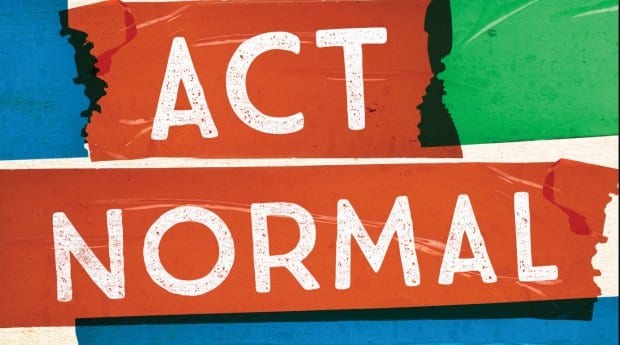This story was created by Xtra's branded content team alongside The Word On The Street, separate from Xtra's editorial staff.
To say author Greg Hollingshead is a decorated writer would be a vast understatement. In 1995, he was the recipient of the Governor General’s Award for fiction and received the Order of Canada in 2012. The Toronto-based writer has penned three novels and four collections of short stories, including Act Normal — a poignant, darkly comedic collection of stories predicated on the everyday risk of accidents.
In The Amazing Insult, protagonist Greta is involved in a boating accident. As a result of a head injury, she experiences a shift in her sexual orientation that upends her marriage and transforms her identity. Hollingshead says the inspiration for the story was a newspaper article on a woman whose sexuality changed following a car accident.
As part of the 25th anniversary of The Word On The Street, Hollingshead will be reading from Act Normal in the festival’s Great Books Marquee program. Daily Xtra spoke with the writer ahead of his appearance at the festival.
Daily Xtra: Can you tell me how Greta’s boating accident catalyzed her shift in sexual orientation? Is it the accident that caused this newfound self awareness?
Greg Hollingshead: The accidental blow to the head has increased Greta’s intelligence. It certainly feels like that to her. Among other things, along with this has come an interest in a particular woman, whom she first sees in a photograph of her as a girl. I think the story can be read as suggesting either that Greta’s increased intelligence has revealed her actual sexual orientation, or that the higher a person’s intelligence, the less constrained she may be by gender roles.
“People at close quarters are a shuffle of closed doors, she’d always imagined, nobody ever really gets to know anybody, we’re as mysterious to each other as we are to ourselves, and so on.” Can you talk about this passage as it relates to Greta’s story? Do you think this has broader meaning to LGBT people?
This is how Greta thought when she was “dumber” and living with her husband. Living with Frances teaches her otherwise, because Frances is open and capable of loving and being loved. I think we exaggerate the unknowability of others as a way of justifying a disinclination to know ourselves, because life seems easier that way. It isn’t. Or we’re afraid to know “how we really are.” Society has traditionally created lots of fear in LGBT people in this respect. It’s about keeping people in line.
Greta’s lover Frances asks her why she’s behaving like a man. Does this have significance to her sexuality? What motivates Frances to ask this question?
This is a cruel little irony. You might say that having lived with her husband as long as she did, she’s internalized him and so assumes Frances needs her protection. Greta is not as free of her past as she hopes or imagines.
What’s next for you writing-wise?
I’ve just finished the first draft of a novel based on a true love story, set at the beginning of the 20th century.
The Word On The Street Festival
Sunday, Sept 27, 2015, 11am–6pm
Harbourfront Centre, 235 Queens Quay W, Toronto
Thewordonthestreet.ca


 Why you can trust Xtra
Why you can trust Xtra